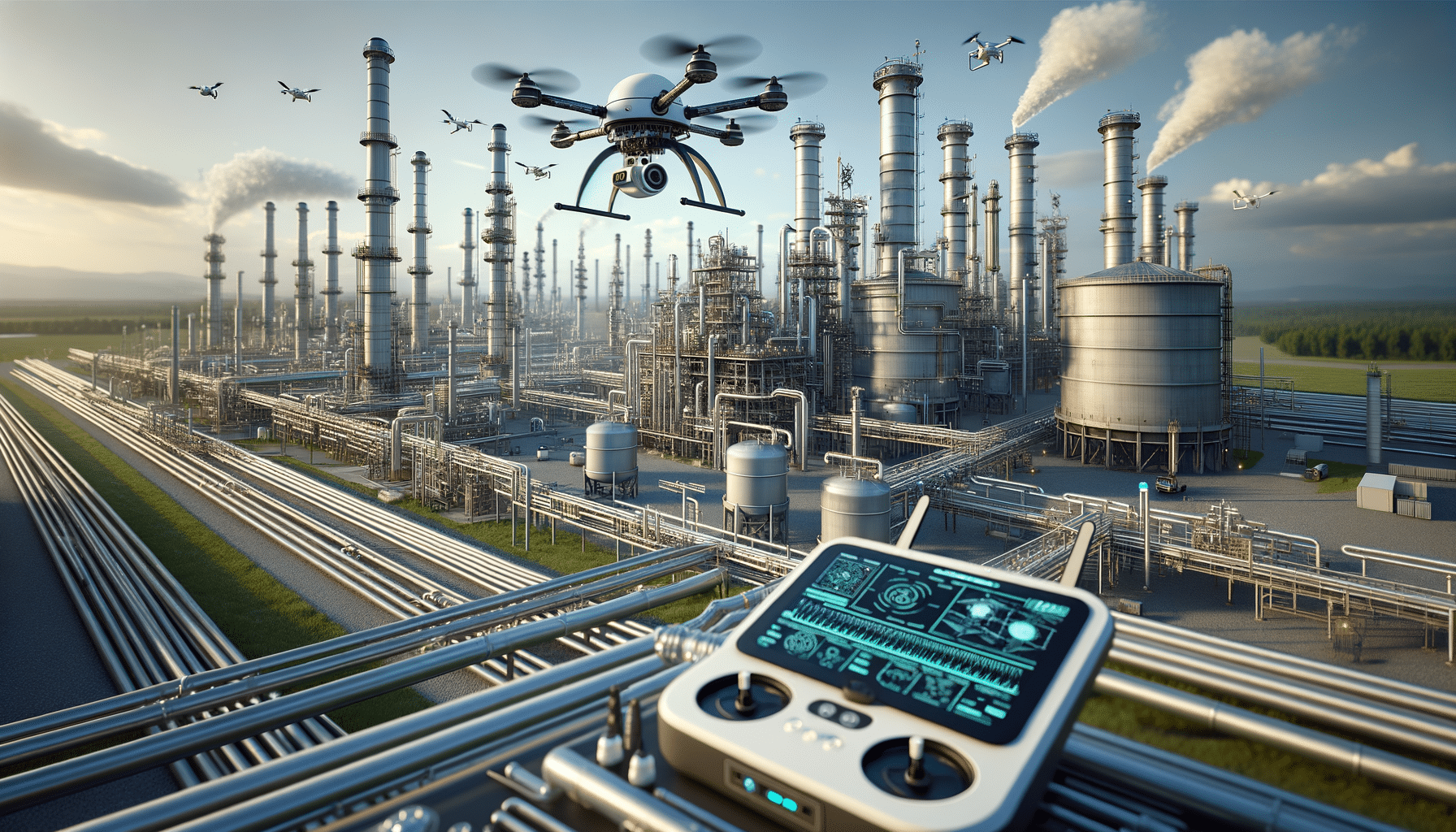
How to Become a Drone Operator for Industrial Inspections
Introduction to Drone Operations in Industrial Inspections
As technology advances, industries are increasingly turning to drones for efficient and safe inspections. Drone operators are therefore in high demand, offering a promising career path for those interested in aviation and technology. This article explores the steps required to become a drone operator specializing in industrial inspections, a field that is transforming how companies monitor and maintain their assets.
Industrial inspections using drones offer several advantages over traditional methods. They provide access to hard-to-reach areas, reduce the need for dangerous manual inspections, and can capture high-resolution images and data that enhance decision-making processes. As a result, industries such as oil and gas, construction, and utilities are adopting drone technology to improve safety and efficiency.
Becoming a drone operator involves obtaining the necessary certifications, gaining hands-on experience, and understanding the specific requirements of industrial inspections. This guide will walk you through each step, helping you build a successful career in this exciting field.
Certification and Training for Drone Operators
To work as a drone operator in industrial inspections, obtaining the appropriate certifications is essential. The first step is to acquire a Remote Pilot Certificate, which is mandated by aviation authorities in many countries. This certification ensures that operators understand the rules and regulations governing drone flights, as well as safety protocols.
The certification process typically involves passing a knowledge test that covers topics such as airspace classification, weather effects, and emergency procedures. Many training programs are available to help candidates prepare for this test, offering both theoretical and practical instruction.
In addition to the Remote Pilot Certificate, some industries may require specific training related to their operations. For example, operators working in the oil and gas sector might need to understand the inspection of pipelines and refineries, while those in construction may require knowledge of surveying and mapping techniques.
Overall, investing in comprehensive training not only prepares you for certification but also enhances your skills, making you a more competitive candidate in the job market.
Gaining Experience and Building a Portfolio
Experience is a critical factor in securing a position as a drone operator for industrial inspections. Building a strong portfolio that showcases your skills and expertise can set you apart from other candidates. Start by seeking opportunities to practice flying drones in various environments, focusing on capturing high-quality images and data.
Consider volunteering for projects or collaborating with other drone enthusiasts to gain practical experience. Participating in competitions or joining drone clubs can also provide valuable networking opportunities and help you learn from experienced operators.
As you gain experience, document your work by creating a portfolio that highlights your achievements. Include examples of inspections you’ve conducted, any specialized training or certifications you’ve obtained, and testimonials from clients or collaborators. A well-curated portfolio demonstrates your capabilities and professionalism to potential employers.
Remember, the more diverse your experience, the better prepared you’ll be to handle the unique challenges of industrial inspections.
Understanding Industry-Specific Requirements
Each industry has its own set of requirements and standards for drone inspections. Understanding these specifics is crucial for success as a drone operator. For instance, in the energy sector, operators may need to inspect wind turbines or solar panels, requiring knowledge of renewable energy systems and the ability to identify potential issues through aerial imagery.
In the construction industry, drone operators often assist with site surveys, progress monitoring, and safety inspections. Familiarity with construction processes and the ability to interpret blueprints and site plans can be advantageous.
To effectively meet industry needs, consider pursuing additional training or certifications relevant to your target sector. This specialized knowledge not only enhances your skills but also increases your value to employers who require expertise in specific areas.
Staying informed about industry trends and technological advancements is also essential. As drone technology evolves, so do the applications and expectations within various industries. Continuous learning and adaptation are key to maintaining a successful career in this dynamic field.
Finding Job Opportunities and Advancing Your Career
Once you have the necessary certifications and experience, the next step is to find job opportunities in the field of industrial drone inspections. Networking is a powerful tool in this process. Attend industry conferences, join professional associations, and connect with other drone operators to learn about job openings and industry trends.
Online job boards and company websites are also valuable resources for finding positions. Tailor your resume and cover letter to highlight your relevant skills and experience, and be sure to include your portfolio to provide potential employers with a comprehensive view of your capabilities.
As you gain experience, consider specializing in a particular industry or type of inspection. Specialization can lead to higher demand for your services and potentially higher compensation. Additionally, staying engaged with ongoing training and certification programs can open doors to advanced positions or leadership roles within organizations.
By following these steps, you can build a rewarding career as a drone operator in industrial inspections, contributing to the safety and efficiency of various industries.


